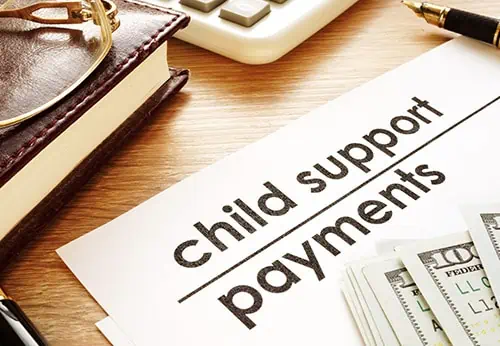
First, it assumes what each party’s income is, and the guidelines take what each person reports for income as the absolute truth. However, we know that one parent could falsely or inaccurately report business income, expenses, or other income. If this is the case, it’s worthy of contesting the case.
Then again, the presumptive formula only calculates up to the $163,000 cap, and it’s entirely discretionary to the court whether to stay with that cap or how high in combined parental income the court could go up. In high-income cases, the court raises the cap to $400,000-$500,000 or $600,000 yearly. They may even remove the cap entirely.
How Does New York State Enforce Child Support Payments?
As a custodial parent, you can (and should) ensure that your child support payments are made through the New York Support Collection Unit (an alternative is Expert Pay, which allows for direct payments, but has a third party keep track of money coming in & out). This will help ensure that you receive the payments you are entitled to in a timely manner.
New York Support Collection Unit is a state agency that collects support and will automatically garnish the non-custodial parent’s income on your behalf. They also have certain administrative powers, including suspending licenses or seizing tax refunds. They can even file an application for the Court to hold the person in contempt of court for not paying on time.
A violation of this nature usually results in a money judgment unless the non-custodial parent has an excellent defense of some sort. Once you have a money judgment, you can execute the judgment as you would any civil court case. Thus, you can execute it against any bank account or other assets, such as property. In theory, as long as you have the license number of their vehicle, you could take the judgment, give it to the sheriff, and the sheriff could start seizing their vehicles on your behalf (with the proviso that there are a few other steps involved in seizing a vehicle – so definitely consult an attorney on the issue).
Therefore, if you know that the non-custodial parent has property, this can be a very effective strategy. Additionally, they cannot sell a property without first satisfying the lien. Finally, if the court determines a person has the means to pay, is hiding their actual income, or putting their assets and property in other people’s names, then the court has the power to put him in jail for avoiding paying child support.
For more information on Contesting Child Support Amounts In NY, an initial consultation is your next best step. Get the information and legal answers you are seeking by calling (914) 362-3080 today.

Call Now To Schedule A 20-minute Case Assessment
Or Full 50-minute Case Strategy Consultation!
(347) 797-1188 | (914) 362-3080

